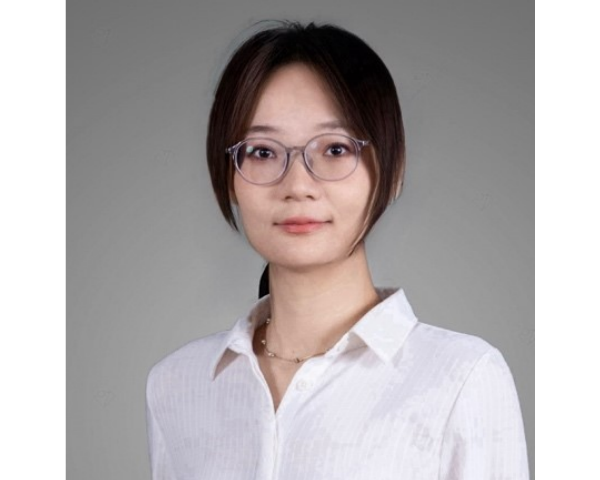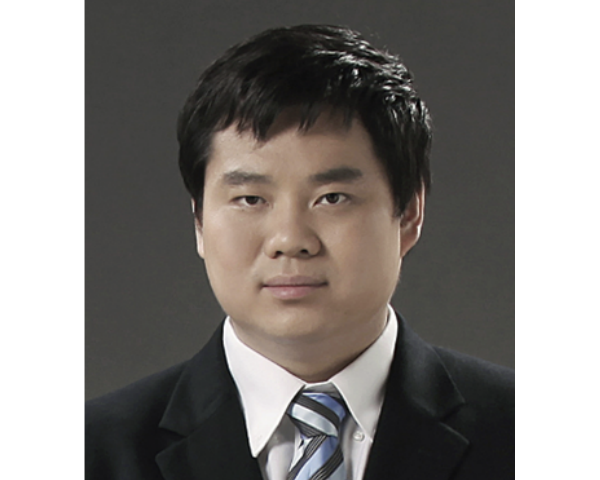Artificial Intelligence (AI) has become a critical enabler for next-generation wireless networks. However, as AI systems are increasingly deployed for intelligent resource management, signal processing, and network optimizations, the "black-box" nature of complex AI models, particularly deep learning, raises significant concerns regarding their trustworthiness, operational reliability, and decision-making transparency in mission-critical network environments. Unexplained AI failures, vulnerability to adversarial attacks, or unpredictable behavior in open radio environments can lead to severe service of quality (QoS) degradation and security breaches. This session focuses on research at the forefront of wireless communications for Trustworthy, Reliable, and Explainable AI, covering full-stack innovations from secure protocols at the physical layer to self-healing architectures at the network layer.
By bringing together researchers and practitioners from academia and industry, this session aims to foster collaboration and advance the state-of-the-art in Trustworthy, Reliable, and Explainable AI networks. We welcome original research papers, case studies, and visionary perspectives that highlight both theoretical and practical advancements in next generation wireless technologies.
Topics (Including but not limited to):
- Explainable and interpretable AI models for PHY/MAC layer wireless communications; 面向物理层/媒体接入控制层的可解释与可理解AI模型;
- Trustworthy and robust machine learning for network optimization and intelligent resource management; 面向网络优化与智能资源管理的可信与鲁棒机器学习方法;
- Uncertainty quantification, calibration, and reliability assessment in AI-based wireless systems; 基于AI的无线系统中不确定性量化、模型校准与可靠性评估;
- Trade-offs among model performance, computational complexity, and interpretability in network AI design; 网络AI设计中模型性能、计算复杂度与可解释性之间的权衡机制;
- Verification, validation, and continuous monitoring of AI models in wireless infrastructures; 无线基础设施中AI模型的验证、验证与持续监测技术;
- Design of fault-tolerant and self-healing mechanisms for intelligent URLLC (Ultra-Reliable and Low-Latency Communications) and autonomous networks; 面向智能超可靠低延迟通信与自主网络的容错与自愈机制设计;
- Federated, privacy-preserving, and human-in-the-loop learning for trustworthy edge intelligence; 面向可信边缘智能的联邦学习、隐私保护与人机协同学习;
- Standardization efforts, evaluation metrics, and benchmarking for Trustworthy, Reliable, and Explainable AI in communications. 通信系统中可信、可靠与可解释AI的标准化、评估指标与基准测试研究
Organizer: Assoc. Prof. Jingqing Wang, Xidian University, China

Jingqing Wang (M'23) received the B.S. degree from Northwestern Polytechnical University, Xi'an, China, in Electronics and Information Engineering and the Ph.D. degree from Texas A&M University, College Station, TX, USA, in Computer Engineering in 2022. She is currently a Jingying assistant professor with Xidian University. She has published more than 60 international journal and conference papers in IEEE JOURNAL ON SELECTED AREAS IN COMMUNICATIONS, IEEE magazines, IEEE TRANSACTIONS, IEEE INFOCOM, GLOBECOM, WCNC, and ICC. She won the Best Paper Award from the IEEE GLOBECOM in 2020 and 2014, respectively. Her current research interests focus on next generation mobile wireless network technologies, statistical QoS provisioning, 6G mURLLC, information-theoretic analyses of FBC, emerging machine learning techniques.
Co-organizer: Prof. Wenchi Cheng, Xidian University, China
 Wenchi Cheng (M'14–SM'18) received the B.S. and Ph.D. degrees in telecommunication engineering from Xidian University, Xian, China, in 2008 and 2013, respectively. He was a Visiting Scholar with the Department of Electrical and Computer Engineering, Texas A&M University, College Station, TX, USA, from 2010 to 2011. He is currently a Full Professor with Xidian University. He has published more than 200 international journal and conference papers in IEEE JOURNAL ON SELECTED AREAS IN COMMUNICATIONS, IEEE MAGAZINES, IEEE TRANSACTIONS, IEEE INFOCOM, GLOBECOM, and ICC. His current research interests include 6G wireless networks, electromagnetic-based wireless communications, and emergency wireless information. He received the IEEE ComSoc Asia–Pacific Outstanding Young Researcher Award in 2021, the URSI Young Scientist Award in 2019, the Young Elite Scientist Award of CAST, and four IEEE journal/conference best papers. He has served or serving as the IEEE GLOBECOM 2026 Tutorial Co-Chair, the Wireless Communications Symposium Co-Chair for IEEE ICC 2022 and IEEE GLOBECOM 2020, the Publicity Chair for IEEE ICC 2019, the Next Generation Networks Symposium Chair for IEEE ICCC 2019, and the Workshop Chair for IEEE ICC 2019/IEEE GLOBECOM 2019/INFOCOM 2020 Workshop on Intelligent Wireless Emergency Communications Networks. He has served or serving as the ComSoc Representative for IEEE Public Safety Technology Initiative, IEEE ComSoc Distinguished Lecturer, Editor for IEEE Transactions on Wireless Communications, IEEE System Journal, IEEE Communications Letters, and IEEE Wireless Communications Letters.
Wenchi Cheng (M'14–SM'18) received the B.S. and Ph.D. degrees in telecommunication engineering from Xidian University, Xian, China, in 2008 and 2013, respectively. He was a Visiting Scholar with the Department of Electrical and Computer Engineering, Texas A&M University, College Station, TX, USA, from 2010 to 2011. He is currently a Full Professor with Xidian University. He has published more than 200 international journal and conference papers in IEEE JOURNAL ON SELECTED AREAS IN COMMUNICATIONS, IEEE MAGAZINES, IEEE TRANSACTIONS, IEEE INFOCOM, GLOBECOM, and ICC. His current research interests include 6G wireless networks, electromagnetic-based wireless communications, and emergency wireless information. He received the IEEE ComSoc Asia–Pacific Outstanding Young Researcher Award in 2021, the URSI Young Scientist Award in 2019, the Young Elite Scientist Award of CAST, and four IEEE journal/conference best papers. He has served or serving as the IEEE GLOBECOM 2026 Tutorial Co-Chair, the Wireless Communications Symposium Co-Chair for IEEE ICC 2022 and IEEE GLOBECOM 2020, the Publicity Chair for IEEE ICC 2019, the Next Generation Networks Symposium Chair for IEEE ICCC 2019, and the Workshop Chair for IEEE ICC 2019/IEEE GLOBECOM 2019/INFOCOM 2020 Workshop on Intelligent Wireless Emergency Communications Networks. He has served or serving as the ComSoc Representative for IEEE Public Safety Technology Initiative, IEEE ComSoc Distinguished Lecturer, Editor for IEEE Transactions on Wireless Communications, IEEE System Journal, IEEE Communications Letters, and IEEE Wireless Communications Letters.
Co-organizer: Prof. Qinghe Du, Xi’an Jiaotong University, China
 Qinghe Du (M’11) received his B.S. and M.S. degrees both from Xi’an Jiaotong University, China, and his Ph.D. degree from Texas A&M University, USA. He is currently a Professor at School of Information and Communications Engineering, Xi'an Jiaotong University, China. His research interests include mobile wireless communications and networking with emphasis on 5G/6G technologies, physical-layer security, machine learning, statistical QoS provisioning, signal processing, and cognitive radio networks. He has published more than 150 technical papers in the above areas. He received the Best Paper Awards in IEEE GLOBECOM 2007, IEEE ComComAP 2019, and IEEE/CIC ICCC 2021, respectively, and received the Best Paper Awards in China Communications in 2017 and 2020, respectively. He serves or has served as an Associate Editor of IEEE Communications Letters, an Area Editor of KSII Transactions on Internet and Information Systems, and an Editor of Electronics. He was the technical program committee chair of the IEEE/CIC ICCC International Workshop on Internet of Things and its proceeding versions in 2013-2017. He served as the Co-Chairs for Frontiers in Cyber-Physical Systems Track of International Conference on Identification, Information & Knowledge in the Internet of Things from 2016 to 2021. He was the Publicity Chairs of IEEE GLOBECOM 2011, ICST QShine 2010, WICON 2011, and IEEE ICC 2015 Workshop on IoT/CPS-Security.
Qinghe Du (M’11) received his B.S. and M.S. degrees both from Xi’an Jiaotong University, China, and his Ph.D. degree from Texas A&M University, USA. He is currently a Professor at School of Information and Communications Engineering, Xi'an Jiaotong University, China. His research interests include mobile wireless communications and networking with emphasis on 5G/6G technologies, physical-layer security, machine learning, statistical QoS provisioning, signal processing, and cognitive radio networks. He has published more than 150 technical papers in the above areas. He received the Best Paper Awards in IEEE GLOBECOM 2007, IEEE ComComAP 2019, and IEEE/CIC ICCC 2021, respectively, and received the Best Paper Awards in China Communications in 2017 and 2020, respectively. He serves or has served as an Associate Editor of IEEE Communications Letters, an Area Editor of KSII Transactions on Internet and Information Systems, and an Editor of Electronics. He was the technical program committee chair of the IEEE/CIC ICCC International Workshop on Internet of Things and its proceeding versions in 2013-2017. He served as the Co-Chairs for Frontiers in Cyber-Physical Systems Track of International Conference on Identification, Information & Knowledge in the Internet of Things from 2016 to 2021. He was the Publicity Chairs of IEEE GLOBECOM 2011, ICST QShine 2010, WICON 2011, and IEEE ICC 2015 Workshop on IoT/CPS-Security.
Co-organizer: Dr. Zhuohui Yao, Xidian University, China
 Zhuohui Yao (Member, IEEE) received the Ph.D. degree in telecommunication engineering from Xidian University, Xian, China, in 2023. She is currently a Postdoctoral Researcher with Xidian University suportted by Postdoctoral Fellowships, specializing in cutting-edge B5G/6G technologies for emergency wireless communication systems. Her research focuses on advanced wireless communication technologies, including but not limited to unmanned aerial vehicle (UAV)-assisted communication, reconfigurable intelligent surface (RIS)- empowered wireless networks, and integrated sensing and communication (ISAC) systems. She has published more than 10 academic papers in related fields.
Zhuohui Yao (Member, IEEE) received the Ph.D. degree in telecommunication engineering from Xidian University, Xian, China, in 2023. She is currently a Postdoctoral Researcher with Xidian University suportted by Postdoctoral Fellowships, specializing in cutting-edge B5G/6G technologies for emergency wireless communication systems. Her research focuses on advanced wireless communication technologies, including but not limited to unmanned aerial vehicle (UAV)-assisted communication, reconfigurable intelligent surface (RIS)- empowered wireless networks, and integrated sensing and communication (ISAC) systems. She has published more than 10 academic papers in related fields.
※ Important Dates | 重要日期
|
※ Submission Guideline / 投稿指南Template Download: WORD Formatting.doc (文章模板下载) | LaTex Template Please log in the
Submission System; ( .pdf only) to submit your full paper and abstract. |
